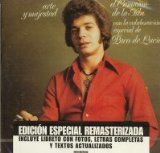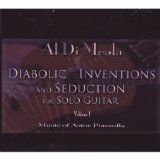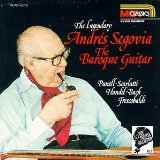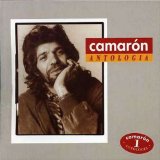Flamenco - Compas, Part I
Disclaimer
Unlike other forms of music, I am still very much a student of flamenco. If you want first-hand knowledge of flamenco, you should find a good teacher. Also, you should be careful with your hands. Playing flamenco is a lot of work and you shoould warm up slowly, stretch, take breaks, practice slowly and be patient.
Practice slowly
When you are first learning this stuff you need to practice very slowly. I would suggest setting the metronome on 60 and do one finger movement per beat. This is very slow, but if you want to learn it, it is highly suggested that you practice in this manner at first. It is important to focus on correct technique at first. Remember to stay relaxed. Slowly increase the metronome speed.
When you are starting out learning flamenco, you should get a teacher or be born in a family that knows flamenco. Learning online is not a good way to learn but it's a start if you are curious.
Relax
If you want to be able to play flamenco, your hands need to be relaxed, or else you'll never be able to play and you'll hurt your hands. If these exercises are too difficult or your hands bother you, either do them slower, more gently and more relaxed, or
Notation
Right hand fingers
p = thumb
i = index finger
m = middle finger
a = ring finger
x = pinky
COMPAS
Compas translates into rhythm , more or less. But it also means a lot more. Compas can also be used to describe the different types of beats or palos used in flamenco. This lesson starts to talk about a few palos. There are palos you can count in 4, 3, or 12. In this lesson we talk about a few palos in 12.
Some palos in 12
Buleria, alegria and solea
We'll start with these three - the buleria, alegria and solea. They are counted basically the same.
1, 2, 3, 4, 5, 6, 7, 8, 9, 10, 11, 12
But instead of the counting 11, 12, you count 1, 2. So it's like this:
1, 2, 3, 4, 5, 6, 7, 8, 9, 10, 1, 2
Practice counting in 12
- Get a metronome
- Set it to about 90
- If you can set it to accent certain beats, set it so it will be counting in 3
- Count with the metronome like this:
1, 2, 3, 4, 5, 6, 7, 8, 9, 10, 1, 2
Accents - VERY IMPORTANT
The accents are what makes flamenco flamenco!
Note: There are more then one set of accents, but to start, and in general, these are the main accents of the buleria, alegria and solea.
1, 2, 3, 4, 5, 6, 7, 8, 9, 10, 1, 2
The accents are intalicized. They are on the 3, 7, 8, 10, and 12.
Practice counting in 12 with accents
- Get a metronome
- Set it to about 70
- If you can set it to accent certain beats, set it so it will be counting in 3
- Count with the metronome like this, this time accent the 3, 7, 8, 10 and 12
by saying them louder:
1, 2, 3, 4, 5, 6, 7, 8, 9, 10, 1, 2 - The accent of the metronome should be on the 3, the 6, the 9, and 12. It's not a perfect way to keep track, because some of the accents are on different beats but it will help you make sure you don't get lost. The accents on the 3 and the 12 of the palo should line up with the accents of the metronome.
Applying this to the guitar
Description
To start off you are going to practice just with your right hand. The left hand should mute the strings. Use the one finger strum from the rasguaedo lesson.
Practice counting in 12 with the guitar
- Get a metronome
- Set it to about 90
- If you can set it to accent certain beats, set it so it will be counting in 3
- Count with the metronome like this while you strum or do the one finger strum:
1, 2, 3, 4, 5, 6, 7, 8, 9, 10, 1, 2
IMPORTANT!
You have to play right on the beat!! You need to lock in tight, like the guitar in James Brown. Every time you play a little a bit out of time you owe James Brown fifty bucks, ya know?
Just play real slow and focus on really locking in the time. The guitar is the bass, the drums and the guitar in a lot of flamenco, so this is really a big deal and if you want to play flamenco focus on having great time!
Practice counting in 12 with accents with guitar
- Get a metronome
- Set it to about 70
- If you can set it to accent certain beats, set it so it will be counting in 3
- Count with the metronome like this, this time accent the 3, 7, 8, 10 and 12
by saying them louder and play the guitar with accents:
1, 2, 3, 4, 5, 6, 7, 8, 9, 10, 1, 2
Practice this for at least a week before you go on!
Once you feel the beat a little better, then we'll start looking at chords.
There is really no rush. It'll take at least a few months or a year before you'll feel kind of comfortable with this. It's like when you were a baby and you were learning to talk.
Practice doing this with the metronome between 70 and 200. All times are important because of the range of speeds used. For example, the solea could be between 70 and 130 beats per minute, while the buleria might be between 160 and 250.










